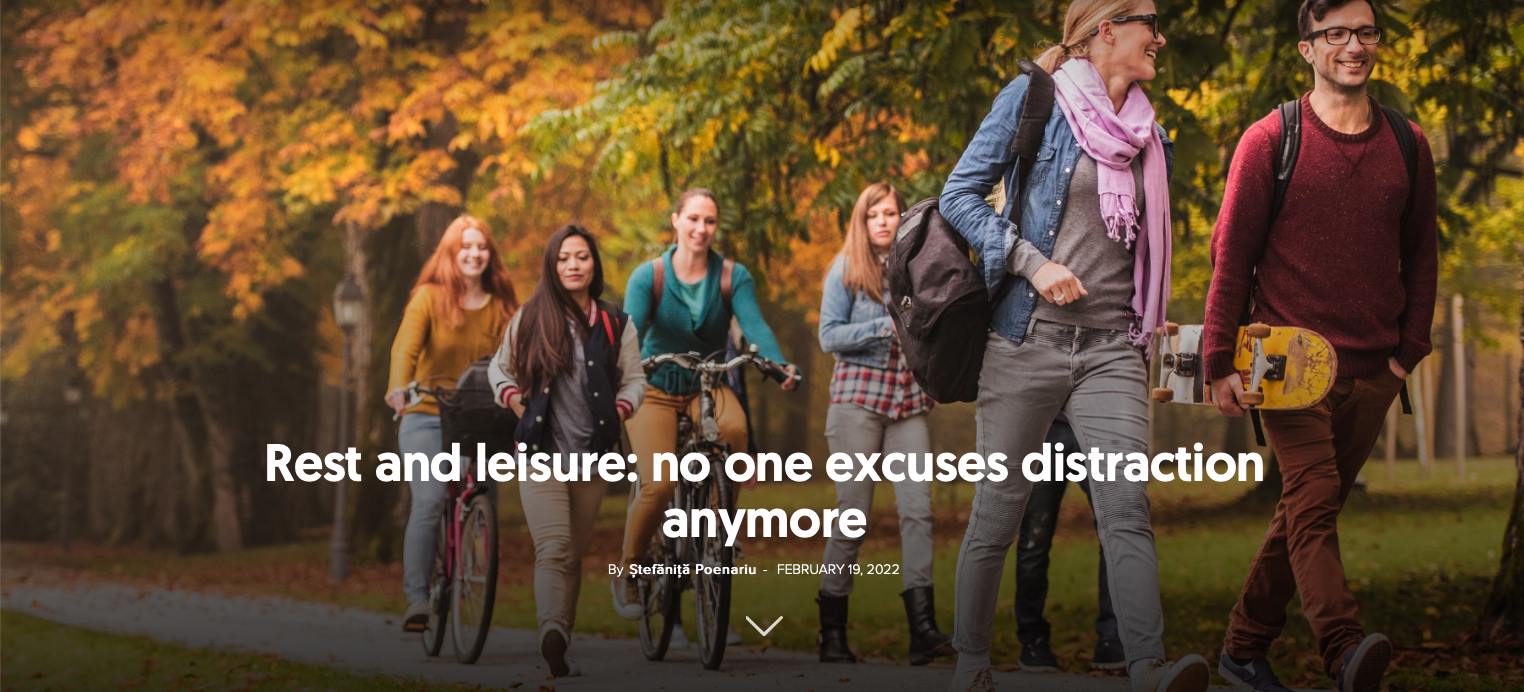In its first two decades, the 21st century has already received several titles: the century of speed, the era of information, or the digital era. In a constantly connected world, does authentic disconnection still exist?
Humanity has made tremendous progress in the field of technology and, as a result, we can now be “connected” at all times, 24/7, to what is happening around us. With the means at our disposal, one could say that our lives are so intertwined that our personal universe becomes a shared one. The problem raised by this common universe is precisely the act of disconnecting, which often proves to be challenging.
The ease with which we have access to almost everything we desire can be overwhelmingly insidious, silently eroding the barrier between leisure and work time. Notifications pop up at any time of the day, reminding us of work or school issues, presenting us with fatalistic news headlines, useless trivial gossip, causing us to get worked up over insignificant matters, advertising products we don’t need, and sending us messages or calls we would prefer not to respond to. This amalgamation, impossible to sort in an ideal manner, does nothing but push us towards perpetual overload in the personal universe we share with many others. The inertia with which we absorb this volume of information leads to the need for “detoxification.”
Regarding disconnection, there are two major approaches that differ in their underlying ideology: we may desire disconnection to focus on personal development or to escape responsibilities. The latter approach, obviously, is more harmful than beneficial. Avoiding tasks only adds to our anxiety, which ultimately results in exhaustion. Such a strategy has much in common with procrastination. Procrastination is not synonymous with laziness, as it is merely a postponement of responsibilities, not an outright disregard for them. However, this prolongation becomes a burden on our conscience, making true disconnection impossible.
The first strategy, on the other hand, involves a clear separation between the time dedicated to work and time dedicated to oneself, promoting the expansion of one’s own personhood and the recovery or consolidation of one’s identity outside the current circumstances in which one lives. Andrei Pleșu succinctly but evocatively defines this type of disconnection as “a hygienic, vertical exit, outside of the present moment.”[1] These are the moments when obligations, urgencies, and problems temporarily take a backseat, and leisure becomes paramount. This is where variability comes into play, as each of us has a different way of capitalising on the time spent away from screens. Such activities are accompanied by a positive anticipation of the experience and in themselves represent opportunities for growth and relaxation. This approach to self-expansion facilitates good moral conditioning and optimal functioning in everyday life.[2]
Beyond the benefits already mentioned, the pleasure derived from immersing oneself in a pleasurable activity is hard to describe. When we are truly absorbed by our passions, we involuntarily forget about stress, hours fly by in minutes, and our attention is devoted to a very clear task, oriented towards the opportunity for growth. The satisfaction of gradually surpassing our limits in our chosen field is irreplaceable and provides us with the essential energy to confront the challenges we must overcome in our daily routines. Throughout this experience, the emotions are best understood after being lived out.
However, we cannot simply limit ourselves to an ideal picture of beneficial and constructive disconnection, because in real life, we face problems that have a variety of personalised nuances.
One source of discouragement is the lack of an occupation that is a hobby. Some individuals confess to having no hobbies at all. Having gone through such stages myself, I believe that this seemingly insurmountable barrier crumbles if you persist in identifying a hobby that suits your personality. Often, a period of trial and error is necessary to discover exactly what might interest you, as your expectations might not always be congruent with reality.
However, obstacles may continue to arise even after choosing a hobby. A common impediment, which often leads to abandonment, is the need to familiarise oneself with the chosen activity. The beginning in any field can be daunting, and it is normal to feel discouraged. However, with perseverance and a little discipline, this stage is overcome and followed by satisfaction.
Moments of rest outside the turmoil of everyday life are not a foreign concept to biblical teachings. A relevant example comes from the Saviour Himself. Jesus used the time spent away from the crowds for prayer or meditation before an important decision, for fellowship with His disciples, but also for the necessary rest to continue His work: “The apostles gathered around Jesus and reported to him all they had done and taught. Then, because so many people were coming and going that they did not even have a chance to eat, he said to them, ‘Come with me by yourselves to a quiet place and get some rest.’ So they went away by themselves in a boat to a solitary place” (Mark 6:30-32).
Although the mission of the apostles was noble, their limited energy could not be ignored. Their constant presence among the people and their work for and among them can be equivalent to the busyness we experience today. While people may not physically follow us wherever we go, digitally we can have a whole world around us and trailing behind us.
Disconnection is a vital tool in the era in which we live. Sometimes it may seem unnatural because many of us have forgotten what it’s like to exist outside the realm of our personal-shared universe. However, when used wisely and when we avoid excessive reliance on it, disconnection will help us navigate life’s storms more smoothly.
According to Codrin Panainte, disconnecting from the constant flow of information proves to be a challenging task, given the ease with which we can abuse it or use it in a harmful manner. However, he has identified some of its benefits.




















